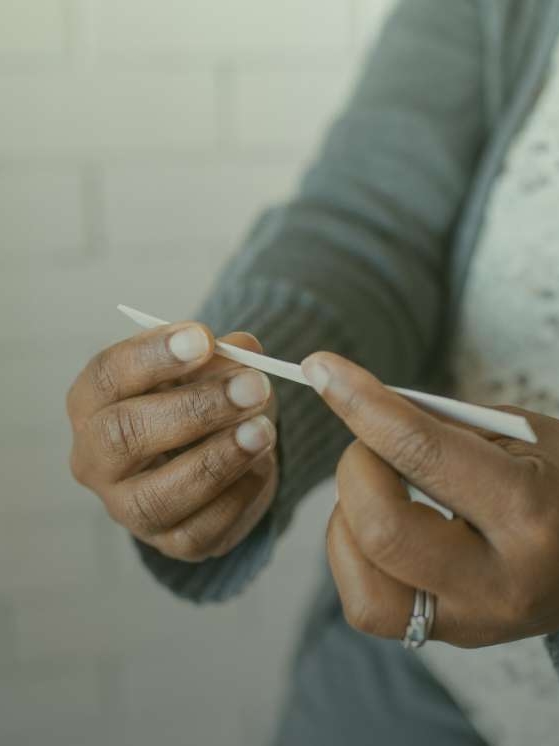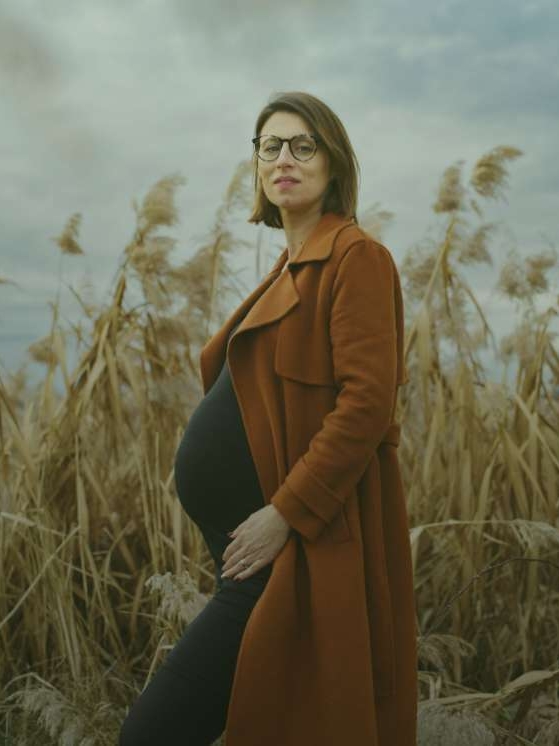Are you in your mid-late thirties or even forties and considering trying for a baby? Here at Hoopsy, we think it’s fantastic that having a baby later has become more common. Whether you’ve waited until you met the right partner or simply wanted to focus on your career or own bucket list first, there are many great reasons why so many women wait until their mid-thirties or beyond before trying for a baby.
On the flip side, after 35, it can be harder to get pregnant naturally. It’s no secret that our biological clocks are ticking. Plus, the risk of pregnancy-related complications increases as you age, too. In this article, we will look at the pros and cons of trying to get pregnant at 35 and beyond!
The Truth About Getting Pregnant After 35
As your nan or even mum has probably helpfully told you in the past, you are not getting any younger. Of course, we know it’s true. As we age, we become infinitely aware that our fertility will start declining. Our egg quality declines as we age, making it harder to get pregnant with every passing year. That’s not to say that 35 is a magical cut-off point, at which point you will no longer be able to conceive naturally. It just means there’s more to consider when trying to start a family.
For some, this declining fertility can happen earlier and for others, years later. Plenty of women give birth naturally without complications way into their 40s and beyond.
Women 30 and under have a 20% chance of getting pregnant during each menstrual cycle. When you hit the big 40, this declines to around 5%. Whilst this might sound disheartening, it simply means that it might take you a little longer to get the big fat positive than it would have a few years earlier.
Benefits Of Getting Pregnant At 35 (And Beyond!)
Before discussing the risks of getting pregnant after 35, let’s first look at some of the benefits and why so many now choose to wait.
More Financial Stability
By the time you reach your mid-30s, you may have more financial stability, which can help you better meet your child’s needs. You might have a stable career, savings, and a better understanding of your finances, allowing you to provide a more comfortable life for your family than you could have in your twenties.
Life Experience
For most of us, age comes with more life experience. This can mean you will be better emotionally equipped to handle the ups and downs of parenting. As you have grown more mature, you are likely to have a more developed sense of empathy, patience, and understanding – making you a more compassionate and nurturing parent.
More Established Relationships
By the time you hit your mid-thirties, you are likely to have some pretty concrete relationships in your life. Whether that’s with your partner or a close circle of friends. Stable relationships offer a greater level of stability to share with your family.
 Disadvantages Of Getting Pregnant After 35
Disadvantages Of Getting Pregnant After 35
Unfortunately, there are additional risks of waiting longer to try for a baby. Those who have chosen to wait to have children could have a more challenging time getting pregnant and have an increased chance of pregnancy complications and multiple births. Here are a few examples:
Difficulty Conceiving
After 35, the quantity and quality of your eggs can decline rapidly. We uterus owners are born with all the eggs we will ever have, and once the stock starts running low, no replacements are available.
Additionally, older eggs are thought to be harder to fertilise. That said, although it can take longer to conceive after 35, it only takes one egg, and if you follow a balanced diet and healthy lifestyle, you still have a good chance of conceiving at 35.
But, if you are over 35 and have been trying for six months or more, don’t wait to seek help from your healthcare provider to assess your fertility.
Increased Risk Of Complications
Women over 35 have a higher risk of several pregnancy-related complications. Unfortunately, as we get older, our body has to work much harder than they would have in our younger years.
Mummas to be over 35 to be are more likely to experience gestational diabetes, hypertension, pre-eclampsia, and birth complications.
Again, at the risk of sounding like an old record, making sure you are in good health before getting pregnant and taking your prenatal vitamins can reduce your chances of experiencing some of the above complications. Also, always remember that just because there is an increased risk doesn’t mean it will happen to you. As a wise doctor once told me, the odds mean nothing unless you are that 1 in 100.
Increased Risk Of Chromosome Abnormalities
Older mums-to-be have a higher chance of birthing a baby with a chromosomal abnormality, such as Down or Patau Syndrome. All women in the UK are offered screening tests for these conditions during their second trimester. The odds of having a baby with a chromosomal disorder over 35 are still comparatively low at around 1 in 350 pregnancies resulting in a baby with a chromosomal disorder. A woman in her 20s typically has a 1 in 1200 chance of birthing a baby with one of these disorders.
Conclusion
If you are trying for a baby after 35, we wish you all the best of luck throughout your journey! There are certainly some wonderful benefits to having a baby a little later. Yes, pregnancy over 35 can come with extra complications, but many women successfully navigate the challenges and go on to enjoy fulfilling family lives.
Having a baby at any age is a deeply personal decision, and every woman should weigh the pros and cons to ultimately do what is right for her situation. If you are trying to conceive, have you joined the Hoopsy Fertility Community yet? If not, come and meet our members looking for advice and friendship on everything related to trying to conceive and fertility.
About Hoopsy
Hoopsy is on a mission to make healthcare more sustainable—starting with eco pregnancy test kits. Our plastic-free, paper-based hCG pregnancy test strips reduce waste without compromising accuracy. We believe better health starts with better choices—for you, and for the planet.
Learn More About…








